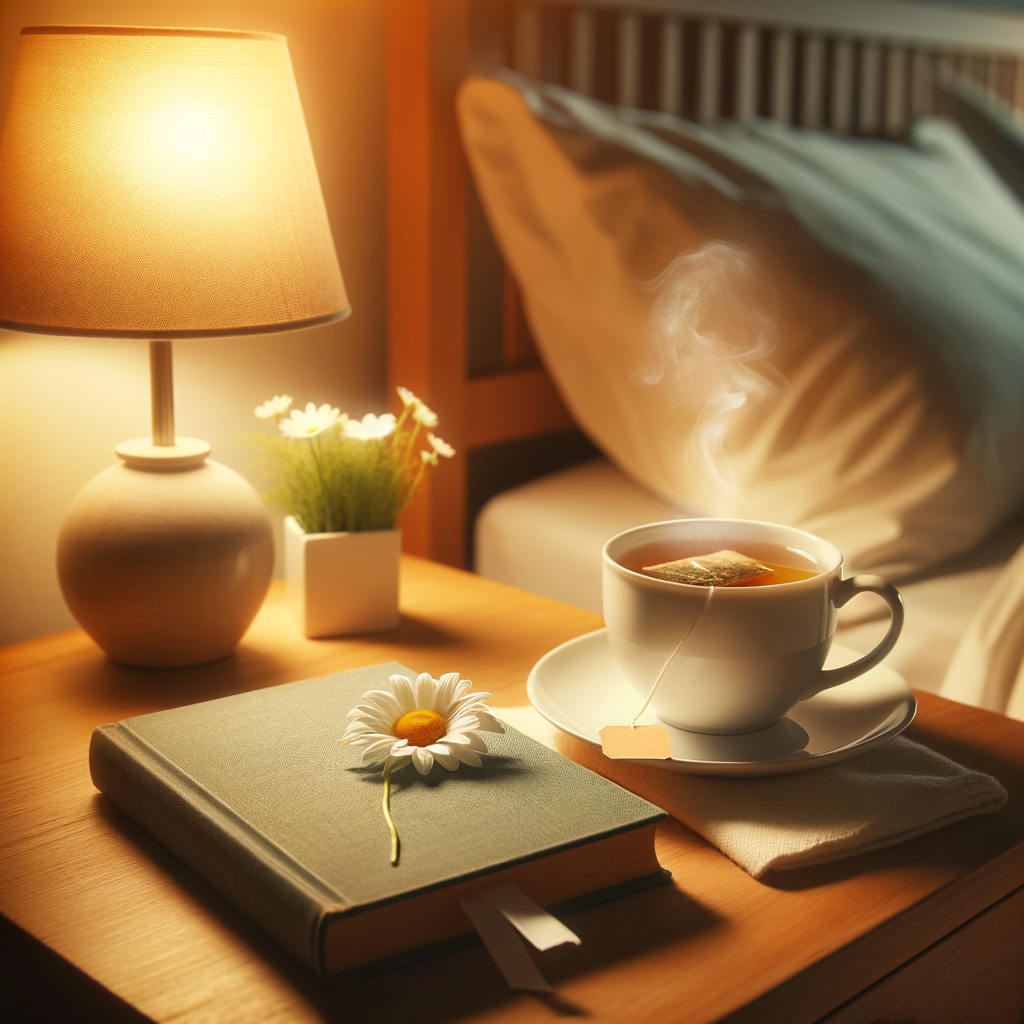Introduction
If you’re someone who values personal freedom, then you probably recognize that making an impact in the world is an important part that will yield your freedom. Whether is a job or you run your business, the impact you create earns you the liquid opportunities – in other words, money – that fuel your freedom.
However, before you can start making a lasting impact, you need to prioritize self-care, especially when it comes to something as fundamental as sleep. Self-care is the foundation upon which your success and freedom are built.
Lately, I’ve been keeping myself busy with work and with the blog. But despite my usual ability to fall asleep quickly and easily, I’ve noticed some changes in my sleep patterns. I typically fall asleep in about two minutes, but only very rarely cannot fall asleep. However, in recent months I started feeling tired in the mornings, waking up in the middle of the night, and having trouble falling asleep as easily as I used to.
So in this blog post, I’ll share the strategies that helped me achieve restorative sleep and the positive impact it had on my physical, mental, and cognitive health.
The Importance of Sleep
Sleep is an essential aspect of our lives that is often overlooked or sacrificed in our fast-paced world. However, the truth is that getting adequate quality sleep is crucial for our overall health and well-being. It plays a vital role in physical restoration, cognitive function, emotional regulation, and even longevity. Without sufficient sleep, we put ourselves at risk of various health issues, impaired performance, and reduced quality of life. Especially if you’re working out or exercising regularly, you know that getting enough sleep is crucial for seeing the benefits. Sleep is the time when your body repairs and builds muscle, so it’s essential for making those gains.
The First Thing: The Environment
Creating a sleep-conducive environment is one of the most essential things you can do to improve your sleep. You’ll be able to fall asleep faster and stay asleep longer, which can have a big impact on your overall sleep quality. Your sleep environment should be cool, dark, and quiet.
The Temperature
Aim for a temperature between 63-67 degrees Fahrenheit (17-19 degrees Celsius) for optimal sleep. Since we are in winter, we set the thermostat to around 18.5 degrees for the nighttime. Also venting your room for five minutes just before going to bed is a great idea. If I have trouble falling asleep, I typically motivate myself to get up and vent, as it helps.
Quietness Matters
Although any noise can become background noise over time, low noise levels are still crucial for quality sleep. We didn’t realize this until we had a noisy neighbor who would play loud music, disrupting our sleep. This taught us in a hard way the importance of sleep and that noise levels matter.
Recently we moved to the outskirts of London to enjoy a more peaceful and tranquil environment. This calmness and nighttime silence made a noticeable difference in our sleep quality.

Blackout Curtains is a Must
After living in London for several years and moving around various places, I can attest that too much light at night can hinder sleep quality. If you don’t have the right blinds, invest in appropriate blinds or even in blackout curtains, especially when you live in the city.
Reduce Blue Light in Your Evening
As humans, we have adapted to our environment and evolved in a circadian rhythm that is regulated by natural lighting. Over the years, extensive research has been conducted on these rhythms, and we have learned that blue light, particularly artificial sources, can interfere with our natural sleep-wake cycle.
Unfortunately, many of our modern devices emit blue light, which can disrupt our hormonal balance and lead to lower sleep quality. Reducing exposure to blue light is the best recommendation for improving sleep, but practical solutions can include using an app on your device that reduces blue light or purchasing glasses with a blue-light blocking filter.
The Power of Winding Down
In today’s constantly connected world, it’s crucial to give our brains a break from the constant barrage of stimuli. However, turning off the overwhelm is not always easy.
During my recent journey to improve my sleep, I’ve implemented several wind-down tactics:
- I’ve enabled nightlight mode on all my devices, including my Ubuntu system, to reduce blue light exposure.
- I’ve started wearing blue-blocking glasses in the evening, especially if I know that I might be in front of the computer till late.
- Avoid screens altogether for at least an hour before bedtime, or two hours if possible. This can be challenging, but it’s worth it.
- Around 22:00 or about an hour before bedtime, I prepare camomile infusion and take supplements.
- If I’m feeling tense or overworked, I take a quick relaxing hot shower.
- Lastly, I try to read a book in bed for at least 5-15 min with a dim light. And/or have a small talk with Yurema.
This ritual, though not perfect, has become a crucial part of my evening routine, signaling to my body that it’s time to wind down and prepare for sleep. Any journey begins with a first step, so it’s essential to “know thyself” and discover what works best for you. While I’ve never been successful with meditation, other effective ideas for winding down include journaling, planning for the next day, maintaining a gratitude diary, or practising breathing exercises.

Supplementing for Better Sleep
While I revisited the basics and made sure I maximized my options, I turned to other sources of knowledge. Inspired by experts like Dr. Andrew Huberman and Dave Asprey, I explored the world of sleep-promoting supplements.
Simplifying Dr. Huberman’s approach, he emphasizes the importance of the components mentioned earlier and also lists various supplements. He suggests an emergency combination for when you need to get a good sleep rather than everyday use: 2g of Glycine and 100mg of GABA.
Things That Worked for Me
In my search for sleep-promoting supplements, I decided to try Apigenin, as recommended by Dr. Huberman. However, I opted for its natural source, chamomile infusion. While I didn’t find it to be the most powerful sleep booster, I enjoyed the taste and found that it helped establish a calming evening ritual.
I was initially skeptical of magnesium as overdose can lead to diarrhea, but it ended up being the most surprising supplement for me. I intended to try Magnesium L-Threonate, but since my order was delayed, I started with Magnesium Glycinate instead. I found that adding any of these magnesium to any combination of supplements I tested, consistently improved my sleep quality.
Another recommendation I tried was L-theanine, but it didn’t work for me. My deep sleep levels dropped to an unacceptable 30 minutes, and I experienced extremely vivid dreams that disrupted my sleep patterns. Dr. Andrew recommends a dosage of 100-300mg, but I caution that I used 200mg capsules.
Lastly, I tried Red Reishi mushrooms and Ashwagandha, both of which have numerous beneficial properties. While they didn’t have a dramatic impact on my sleep, I found that they helped me feel better overall. I decided to keep them as part of my sleep routine.
My Current Goodnight Sleep Supplements
Here is the current list:
- Chamomile infusion
- Magnesium L-Threonate 600mg
- Magnesium Glycinate 1400mg
- Red Reishi Mushroom 1100mg
- Ashwagandha KSM-66 1650mg
Habits to Avoid
Throughout my recent optimization journey, I’ve learned that certain habits can significantly impact sleep quality. From a sedentary lifestyle and late bedtimes to irregular routines, excessive screen time without guards, and late-night dinners, all of these factors can contribute to poor sleep.
However, I’ve found that alcohol consumption is the worst enemy of all. Even small amounts can lead to shallower sleep, disruptions, and a lack of restoration the following day.
I strongly suggest addressing these factors, as I’ve seen noteworthy improvements in my sleep as a result.
Next Steps and Continuous Improvement

While I’ve made noticeable progress in improving my sleep, I know there’s always room for betterment. I plan to explore emergency protocols for occasional bouts of insomnia.
Secondly, while preparing for this post, I learned that there is a way to extract data from my smartwatch. Surprisingly, my average last year’s deep sleep amounted to 1 hour 15 min, with a lot of inconsistences that could be improved. To gain deeper insights into my sleep patterns I promised myself to keep a log book alongside to know what I tried each night.
I also want to try other methods and revisit L-theanine with lower dosages. I attempted to take half of the current dosage once, and while my dreams were not as vivid, my deep sleep was still over 1 hour and 20 minutes. There may be potential in exploring lower dosages.
Positive Side Effects
Over the past month, I’ve increased my average deep sleep by a few minutes. Rather than experiencing mid-sleep wake-ups, now I consistently wake up feeling restored and full of energy.
Beyond that, my sleep optimization journey has had unexpected positive side effects. I started reading about L-theanine and discovered that it can enhance cognitive performance. So instead, I added it to my morning coffee routine, along with supplements like lion’s mane, and have noticed a significant improvement in cognitive clarity and brain power throughout the day.
I also consider that the nightly supplementation with Magnesium l-Threonate may be taking some time to kick in. It is believed to easily cross the blood-brain barrier, making it more bioavailable. Alternatively, my brain may be simply regenerating better due to the improved sleep.
Conclusion
Prioritizing sleep has been a game-changer for me, and I encourage everyone to embark on their journey toward better nights. With positive or negative side effects I believe making this step was worth taking. By creating a sleep-friendly environment, implementing a wind-down routine, exploring beneficial supplements, and avoiding disruptive habits, you can unlock the power of restorative sleep and experience its profound impact on your overall well-being.
“What would you try yourself? What is your suggestion to improve your sleep?”


1 thought on “Unlocking the Power of Restorative Sleep: My Journey to Better Nights”
Pingback: 7 Life-Changing Hacks to Overcome Anxiety: A Holistic Approach – Journey to Freedom